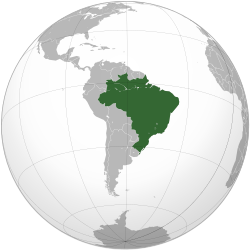References
- ↑ Soraya Sobreira (1 December 2012). "Para a lei, já não há mais diferença" [For the law, there is no difference any more]. Journal de Brasilia (in Portuguese). Archived from the original on 1 June 2013. Retrieved 15 January 2013.
- ↑ "TJFDT: Justice authorizes change of name and sex of transsexual (TJDFT: Justiça autoriza mudança de nome e de sexo de transexual)". Archived from the original on 2011-05-19. Retrieved 2013-04-19.
